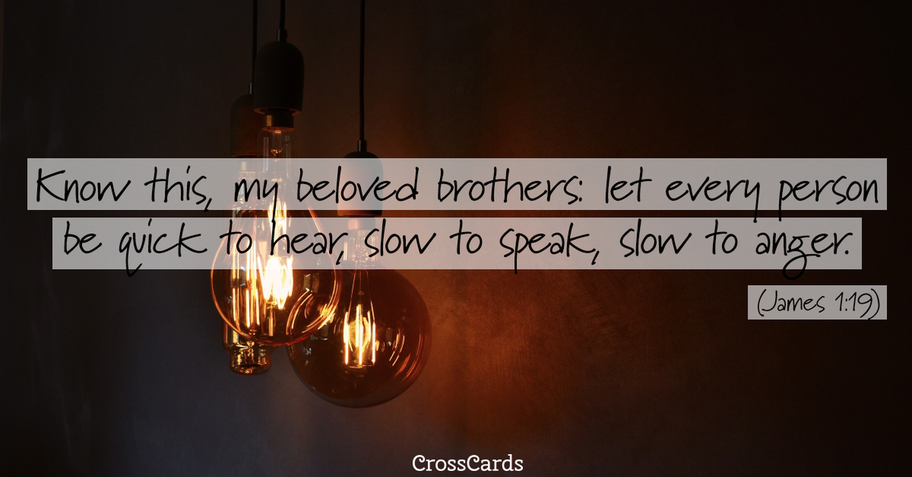Unbridled anger unleashes an offensive attitude that often expresses itself in a barrage of vile words and/or aggressive behavior. While there may be a quick release of angry emotion, others may become victims of the residual fallout.
If we internalize and bury anger without dealing with the root cause, bitterness festers and our heart hardens.
Learning how to follow the smart advice of James to listen carefully before speaking and respond slowly while controlling our emotions could be the answer to many of our physical, social, and relational concerns.
6 Ways Christians Can Respond to Anger Today
1. Turn off the News
Did you know the media outlets design the news to raise your blood pressure, anxiety level, and anger meter? The media wants you to engage angrily with the person or situation they're reporting on—they want you mad. Occasionally, they’ll throw in a feel-good story, but usually it’s a series of “breaking news” that’s not substantiated or factual...just hearsay, opinions, or “maybes”...and you walk away...angry.
The media purposely creates headlines to generate a negative response and the more salacious the title, the more people read the article. Even as Christians, we’re being conditioned right along with everyone else.
Keep current but not conflicted.
2. Refrain from Heated Discussions
We’re all guilty of saying to someone, “You make me so angry!” Maybe that person does typically irritate us, but it’s our choice whether or not we give in to our anger.
If you find yourself raising your voice, change the subject. If you can’t debate without being disagreeable, don’t forge on trying to win the argument. It’s not worth it.
3. Don’t Engage on Social Media Over “Hot topics”
Social media is a place where people feel free to express their anger with words they probably would never use in person. I’ve experienced angry, vulgar, mean, vicious lashing out comments on my blogs, Facebook, and Twitter posts. It’s alarming that people live with such angry, bitter thoughts in their minds and hearts and use hurtful, X-rated words in their daily lives.
Ignore them. Engaging online with someone you may not even know isn’t a good use of time or energy. Avoid following people whose posts and comments tend to annoy you.
4. When Possible Take Positive Action
We may think that we can’t make a difference or change circumstances that upset us, but often we can. When you’re doing something about a situation and you feel a sense of hope and purpose...your anger subsides.
5. Recognize Your Angry Signs
Next time you’re starting to feel angry, notice what triggers reactions in your body and mind. Acknowledge that you’re getting angry. Stop, take a deep breath, and if possible step away from the source of anger. If you’re in the midst of a heated discussion, let the other person know you’re not walking away in a huff; you just need to take a break.
6. Release Your Anger to God
Pray and ask God what you should do regarding the source of anger. Defuse and release your anger to God. You’ll feel a sense of peace.
Cast all your anxiety on him because he cares for you. – 1 Peter 5:7
Photo Credit: ©Getty Images/fizkes












